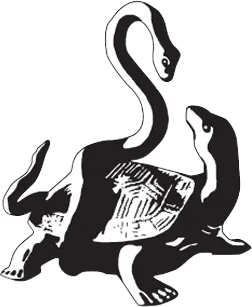新加坡
北辰宫
向世界推广玄武文化
玄天上帝的身世
有關玄天上帝的由來,典籍記載非常多,有一說指玄武為原始化身、太極別體。上三皇時,下降為太始真人;中三皇時,下降為太乙真人;至黃帝時,下降為玄天上帝。
相傳淨樂國王與皇后結婚多年而無後嗣,有一日,皇后在夢中吞日,懷胎十四個月後,終於在黃帝紫雲元年(西元前二六六年),亦有人說是隋文帝開皇元年(西元五一八年), 三月初三 午時,誕生了玄天上帝。
玄武生而神靈,七歲時,已能日夜誦讀經文,三年後,古籍典冊記憶在心,天文地理無所不通。十五歲時,勤務修行,不願只當一國之君,造福一國之民,並發願要救護天下蒼生,因而放棄王位,進入山洞修煉元真,感動了玉清聖祖紫虛元君,親授無極上道,做為玄帝修行的根基。
紫虛元君復指示玄帝東渡中元國土,尋訪起自乾兌方位的山峰地理,入山修行,才能歸根復位,上為三境輔臣、下作十方大聖。玄帝領命拜別父母,輾轉來到太和山紫霄峰,隱居修煉。
玄帝在山中修煉,歲月如梭經過四十年。年邁父親思念玄帝,派了五百壯兵前來太和山探尋玄帝,因為山領險要,又遇澗水高漲,寸步難行,雖欲強行橫渡,皆無功而返,一直到第九次,才上山見著玄帝,啟傳王命返朝繼承王位。
話說玄帝專心修道,無意還朝,五百壯兵受其感召,眾人心悅誠服,一齊頓悟,決心追隨玄帝左右學道,隱其山中待玄帝功成果滿昇真之後,皆證仙道,即今五百靈官者是也。
玄帝在太和山潛心修道四十二年後,是足五十七歲,終於默會萬真,體得上道,於黃帝紫雲五十七年(西元前二六O六年)歲次甲子年 九月九日 功滿道備昇舉金闕,太和山即今武當山。
玄帝圓道,昇騰九清之後,玉皇上帝令其鎮守北方,統攝斗、色、女、虛、危、室、壁等北方七星,頂戴森羅七座,坐鎮北方為上帝,兼管諸天掛甲兵,左青龍、右白虎、上朱雀、下玄武,坐管千里虛空內,立照十方世界中。明太祖時封為玄天上帝。
玄天上帝,全稱北方真武玄天上帝,也稱北極玄天上帝。常被簡稱為北帝、真武大帝或玄天上帝。其又有玄武大帝、北極大帝、北極佑聖真君、開天大帝、元武神等稱;俗稱上帝公、上帝爺或帝爺公。
其象徵北極星,為統理北方之道教大神、統領所有水族(故兼水神),因北方在五色中屬於黑色,又稱黑帝。 玄天上帝亦是明朝鎮邦護國之神、戰神,明朝官方建了許多玄天上帝廟,並由官方祭祀。北帝據說擁有消災解困,治水禦火,護持武運及延年益壽的神力,故頗受擁戴。
The Origins Of Xuan Tian Shang Di
There are many records in the classics about the origin of Xuan Tian Shang Di. One theory state that Xuanwu was the original incarnation, a separate body from the Taiji. During the reigns of the first three emperors, he descended as the Taishi True Man; during the reigns of the second three emperors, he descended as the “Tai Yi Zhen Ren”. Finally, during the reign of Huangdi, he descended as Xuan Tian Shang Di.
Legend has it that the king and queen of the country of “Qing Le” had been married for many years but had no children. One day, the queen dreamt of swallowing the sun. After being pregnant for fourteen months, Xuan Tian Shang Di was finally born on the third day of the third lunar month at noon, in either the first year of Emperor Zi Yun of Huangdi (266 BC) or the first year of Emperor Wen of Sui (518 AD).
Xuan Tian Shang Di was born as a divine being, and at the age of seven, he was able to recite scriptures day and night. Three years later, he had memorized ancient books and had a thorough knowledge of astronomy and geography. At the age of fifteen, he devoted himself to cultivating virtue and did not want to be just a ruler of a country. He wanted to benefit the people of the whole world and vowed to save and protect all living beings. Therefore, he gave up his throne and entered a mountain cave to cultivate the true essence, which moved “Yu Qing Sheng Zu Zi Xu Yuan Jun”. The latter personally taught him the supreme Dao of Wu Ji, laying the foundation for Xuan Tian Shang Di’s cultivation.
“Zi Xu Yuan Jun” then instructed Xuan Tian Shang Di to cross the sea to the Central Yuan Territory, and search for a mountain peak in the Qian-Dui direction. Only by practicing there could he return to his roots and take his rightful place as a great saint of the Three Realms. Xuan Tian Shang Di followed the order and bid farewell to his parents, traveling to the “Zi Xiao” Peak of “Tai He” Mountain where he secluded himself to practice.
After forty years of seclusion and cultivation on the mountain, the aging father of Xuan Tian Shang Di began to miss him and sent five hundred strong soldiers to search for him on Mount “Tai He”. However, the mountain was treacherous, and the stream was flooded, making it difficult to proceed. Despite their efforts to cross, they were unsuccessful and had to return empty-handed. It was not until the ninth attempt that they finally reached Xuan Tian Shang Di on the mountain and delivered the decree for him to return and inherit the throne.
However, Xuan Tian Shang Di was focused on his spiritual cultivation and had no intention of returning to the throne. The five hundred soldiers were moved by his conviction and sincerity, and all of them were inspired to follow him and learn the ways of the Tao. They decided to stay on the mountain and wait for Xuan Tian Shang Di to achieve enlightenment, and all of them became immortal beings known as the Five Hundred “Ling Officials”.
After forty-two years of intense spiritual cultivation on Mount “Tai He”, Xuan Tian Shang Di finally achieved enlightenment and ascended to the heavens on the ninth day of the ninth lunar month in the year of “Jiazi” (2606 BC in the Western calendar), during the reign of Yellow Emperor. Mount “Tai He” became known as Mount Wu Dang, which is its present-day name.
After completing his cultivation and achieving enlightenment, Xuan Tian Shang Di was entrusted by the Jade Emperor to guard the north and oversee the seven stars of the north, namely Dou, Se, Nu, Xu, Wei, Shi, and Bi. He was also in charge of the celestial armies and had the four mythical creatures, Qing Long, Bai Hu, Zhu Que, and Xuan Wu, under his command. He oversaw the empty space of a thousand miles and shone light upon the ten directions of the world. He was later honoured by Emperor Ming of the Ming Dynasty as Xuan Tian Shang Di.
Xuan Tian Shang Di, also known as Northern “Zhen Wu Xuan Tian Shang Di”, or “Bei Ji Xuan Tian Shang Di”, is often referred to as the “Bei Di”, “Zhen Wu Da Di”, or Xuan Tian Shang Di. He is also called “Xuan Wu Da Di”, “Bei Ji Da Di”, “Bei Ji You Sheng Zhen Jun”, “Kai Tian Da Di”, “Yuan Wu Shen”, and so on.
Xuan Tian Shang Di is a major deity in Taoism who presides over the northern direction and governs the seven stars. He is also known as the “Bei Di”, True Warrior Great Emperor, or Xuan Wu Da Di. He is often associated with the North Star and is considered the protector of the country and the god of war. In addition, he is believed to have the power to ward off disasters, control floods and fires, and grant blessings of longevity and prosperity. During the Ming dynasty, many temples were built in honour of Xuan Tian Shang Di, and he was widely revered as a guardian deity of the state.
温琼元帅
温元帅,原名温琼,是中国民间信仰的地方神,东岳十太保中的第一太保,影响最大,也最忙。他还兼任道教护法将神,为著名“马赵温关”道教四大元帅之一,他又是真武大帝属下三十六天将之一。一身数职,非常的累,影响也最大。
温琼的庙宇,有的叫做广灵庙,有的叫做温将军庙,大多分布在江浙一带,每年的阴历五月初五,温琼的诞辰日,四方信徒纷纷前来祝驾,抬着他的神像在街上游行,镇邪祛恶,免除灾祸,寄托了中国劳动人民一种祛邪、避灾、祈福的美好愿望。
一,在明代神仙小说《封神演义》之中,温琼元帅被改名叫做“温太保”,他原是白龙山寨的土匪首领之一,同伙为马善,后二将跟随商朝大太子殷郊一起攻打西岐,成为助纣为虐的商将之一,与周将交手,最终在战斗中被哪吒与杨戬联手杀死,受封日游神。
封神一书之中说他面相凶恶,面如蓝靛,红发似朱砂,生有三只眼,身穿金甲红袍,兵器为两把“狼牙棒”,还有一件法宝名叫“白玉环”,但与哪吒的乾坤圈对打而碎,因为金打玉故而如此。
温州的东岳爷——忠靖王,是中国民间信仰的地方神。是由道道地地的温州人上升为神的。据明宋濂《忠靖王碑记》载:“忠靖王姓温名琼,温州平阳人。唐长安二年生,至二十六岁,因举仕不第,幻化为神,为民除灾害。”《岐海琐谈》说是“平阳白石街人也。”
二,但中国民间的传说更富人文色彩:平阳县有个不第秀才,叫温琼(也有说叫凌原)。某晚,因夜读,闻窗外有人窃议:“这井汲水的人多,放这里大有功效。”凌原出去观看,而无所见,后捂此为疫鬼。至晨,凌原站在井栏边,阻人汲水,众不信,凌原乃投井而死,以表心迹。后经众人捞起,全身中毒发蓝。后封忠靖王,为泰山神所部的元帅,所供神像为蓝面、蓝手、蓝脸。因为是温州人,赐姓温,俗称“温元帅”,为驱疫之神,通常又叫东岳爷。每年三月初,“中国民间必请王出庙,巡行城内外,以驱瘟疫。”。
温元帅“青面睁目状”是其本来面目,他是因吃了瘟药而瘟死才变成可怕样子的,明清的一些水陆画、鬼神画中的温元帅就是青面睁目模样。其实,不管面凶面善,要紧的惩恶扶善,主持正义。
温州的温忠靖王是由地地道道的温州人上升为神,折射和反映了温州地区民间的神信仰,“神”实是人的人格化,由于他生前为人民做了好事,死后人民敬仰他、纪念他、祭祀他,体现并传承着一种文化观念和人文精神。
赵公明元帅
赵公明,本名朗,字公明,又称赵玄坛,赵公元帅。“玄坛”是指道教的斋坛,也有护法之意,为道教四大元帅之一。同时为阴间雷部将帅和五方瘟神之一。又相传为正财神,司掌世间财源。
赵公明是在中国民间传说中是主管财源的神明,财神主要分为两大类:一是道教赐封,二是中国民间信仰。道教赐封为天官上神,中国民间信仰为天官天仙。
在小说《封神演义》中,姜子牙并没有封赵公明为财神,只封赵公明为“金龙如意正一龙虎玄坛真君”,简称“玄坛真君”,统帅“招宝天尊萧升”、“纳珍天尊曹宝”、“招财使者陈九公”、“利市仙官姚少司”四位神仙,专司迎祥纳福、商贾买卖。
后来,中国民间认为赵公明手下所掌管四名与财富有关的小神,其分别是招宝、纳珍、招财和利市,因而成为财神。财神倾注了中国劳动人民的朴素情感,寄托着安居乐业,大吉大利的美好心愿。
。但有公平之事,可以对神祷,无不如意”。明代小说《封神演义》有姜子牙封神一节,封赵公明为金龙如意正一龙虎玄坛真君,率领招宝天尊、纳珍天尊、招财使者和利市仙官等,当今道教宫观中的财神神像,多为黑面浓须,骑黑虎,一手执银鞭,一手持元宝,全副戎装。该财神像当为武财神,即赵公元帅像。赵公元帅,即赵公明、赵玄坛。魏晋南北朝时期成书的《搜神记》和《真诰》等,都有赵公明的神迹,但只是司土下冢中事,或是瘟神。
元明之间,赵公明的神迹才有完整的记载称,赵公元帅姓赵名朗、玄朗,字公明,终南山下周至赵代村人。原是日精之一。古时天有十日,九日被后羿射下以后,变化为九鸟,墬落于青城山,变成九鬼王。八鬼行病害人,但是赵玄朗却独化为人,避隐蜀中,精修至道。张陵在青城山炼丹时,收赵玄朗护卫丹室。天师丹成,分丹饵之,遂能变化无方。赵玄朗食丹以后,其形酷似天师。天师遂命其永镇玄坛,故号玄坛元帅。《三教搜神大全》称其能“驱雷役电,唤雨呼风,除瘟剪疟,保病禳灾”,“至如讼冤伸抑,公能使之解释,公平买卖求财,公能使之获利和合统管人世间一切金银财宝!

Bei Chen Gong Association (Singapore)
ROS Reg Number: T19SS0008B
成立于2019年,主要推广,保护和传承玄武文化的知识和理念。
Email: [email protected]
